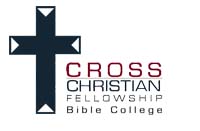Homepage CCF College › Forums › General Chat › Molinism and Norman Geisler
- This topic has 0 replies, 1 voice, and was last updated 8 years, 2 months ago by
 Keith Sedillo.
Keith Sedillo.
-
AuthorPosts
-
-
October 16, 2017 at 6:59 PM #7014
 Keith SedilloParticipant
Keith SedilloParticipantI have been looking into a more balanced view between Calvinism and Arminianism and talking with Pastor Scott he mentioned the traditional view and or middle ground view. I am currently reading the book titled “Chosen but Free” by Norman Geisler. I agree with his views on extreme Calvinism and his view on extreme Arminianism. I don’t find any confusion on these two topics. However, I have gotten stuck on some of his views towards Molinism.
From what I understand traditional Molinism is that God has “Middle Knowledge,” meaning He knows even all of the “what if” scenarios. Molinism is also a way of explaining God’s sovereignty and free will. I recall William Lane Craig introduced us to this doctrine.
I am struggling with the view in the way that people who hold to it would say that, “God elects people based on His foreknowledge, that He knew who would choose Him before time began, so He elects them.” This doesn’t seem such a stretch to me, but after further study, I have questions concerning the salvation aspect.
Geisler proposes the following on the topic.
“Thus what God knows is not based on what He decides and what He decides is not based on what He knows. He knowingly decides and decidedly knows from all eternity all that will come to pass. Therefore, we cannot say that God’s predestination of some (the elect) to salvation was based on His foreknowledge, because there is no chronological or logical sequence in God’s thoughts. Whatever God knows—and He knows everything possible to know, including our future free choices—He knows intuitively and immediately, not sequentially or temporally.
Notice the connection and how careful the biblical language is—we are ‘elect according to the foreknowledge of God.’ (1 Peter 1:2). It does not say, “based on,” it says “according to.” Why because there is no sequence in God’s thoughts.”
Geisler continues…
“This eliminates the extreme free will view that predestination is based on God’s foreknowledge of who is going to believe and who is not going to believe. God’s eternal decisions are not based on anything in time—let alone on our decisions.”
From what I read from Geisler he appears to not follow the belief of Molinism on the salvation aspect, however, it does appear he believes God is all knowing and has middle knowledge. Geisler argues that God does not find out things sequentially but is all knowing from His very source of Being.
I am not throwing out Molinism nor am I throwing out Geisler because it seems that there is an aspect of Molinism that is not entirely correct?
Can I get clarification?
-
-
AuthorPosts
- You must be logged in to reply to this topic.

